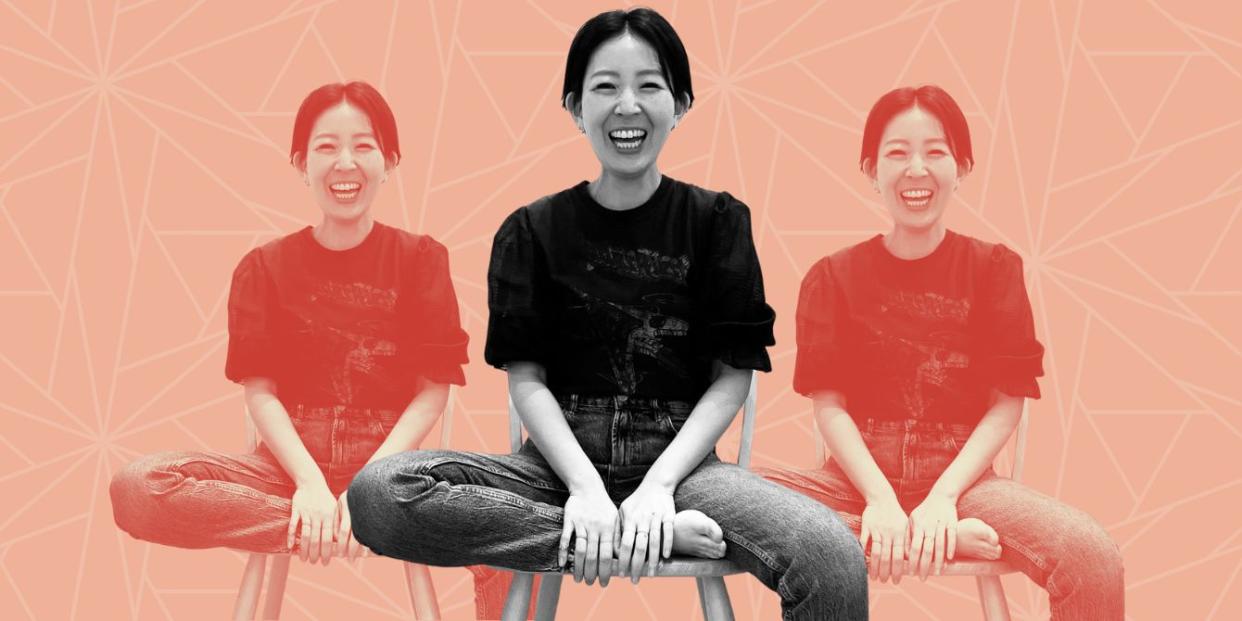Meet the mom changing the script on working motherhood in Japan

Traditional Japanese societal norms have long reinforced the expectation that women should abandon their careers once they have children to become full-time homemakers and caregivers. However, this antiquated notion felt too limiting to Shoko Fujiwara, a single mother of three and entrepreneur. She believed strongly that “each family member should be able to thrive and live authentically.”
Driven by this conviction, Shoko founded the Mama55 Project, a company dedicated to empowering mothers through flexible remote employment opportunities in telemarketing. Her goal was ambitious—to spark a societal shift where mothers could maximize their power and potential without sacrificing family life.
The results have been remarkable. Annually, Shoko’s company provides more than 1,000 mothers with the freedom and flexibility to work from home while raising their children. Through the Mama55 Project, she is paving the way for a more equitable future where motherhood and career ambitions are no longer viewed as mutually exclusive in Japanese culture.
Changing the gender norms
Ingrained cultural norms have historically placed the role of breadwinner squarely on men’s shoulders, resulting in a gender-based division of labor that relegates many mothers to unpaid work inside the home. As a result, Japanese men spend fewer hours on domestic work than their counterparts in any other wealthy nation, according to a report by The New York Times.
Even taking paternity leave was frowned upon, until recent government policy changes started to have a positive impact: In 2023, 24.4% of dads reported taking paternity leave in Japan, up from just 9.6% in 2019.
Of course, these paradigms come at a cost for women, who are often placed in the role of default parent and caretaker, which limits their own career options.
“Japan is still a male-dominated society, and I think there are many areas where we [as women] limit ourselves,” Shoko tells Japanese outlet Neomamaism, in an interview that has been translated from Japanese. “For example, some women may think that they can’t do telemarketing because they feel they’re not good at it. However, when women become mothers, they make compromises, and become tougher and stronger. I want them to believe in the strength mothers have and to cherish their own potential.”
Shoko believes it’s about finding confidence. “Personally, I think that having money to earn yourself, even if it’s only 5,000 or 10,000 yen a month, gives you confidence and increases your freedom of choice, which is a good thing,” she adds. “It’s really the little things. Buying a cup of coffee with your own money, buying cute clothes for your child. These things add up to confidence, so I run my business with the hope that people will cherish even the smallest things.”
Creating flexible jobs for mothers
Based in Setagaya Ward, Japan, Mama55 supports working mothers by offering them flexible work in sales, no experience required. “Our main business is telemarketing contract work, providing mothers all over the country with work that can be done from home using an AI calling system. An AI calling system may sound complicated, but in simple terms, it involves calling companies based on a list, providing information about B2B services, and helping with new business development,” she explains.
“Since we work with partner companies with a wealth of marketing experience, we have extensive training and manuals. We provide thorough know-how in a short four-hour online training session, so even those with no experience can get to work smoothly.”
Shoko intimately understands the challenges of juggling work and childcare responsibilities. “It’s hard to stick to a schedule, so it’s hard to balance work with childcare, and I felt stressed working in a constantly changing situation,” she says, citing child illnesses and daycare pickups. Which is why she set out to create something better—not just for herself, but for mothers everywhere.
Today, Shoko often hires mothers who may only have pockets of time between parenting duties, as well as those living in remote areas. Her goal? Offering women the flexibility and supportive community they need. “By doing so, I think you can work and have peace of mind for a long time. We want to continue listening to the voices of moms and providing even more support.”

 Yahoo Lifestyle
Yahoo Lifestyle 
